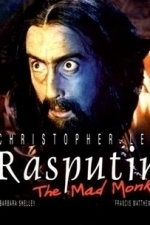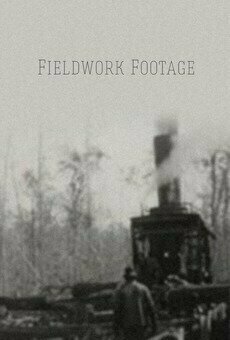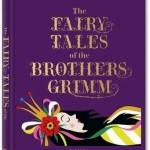
The Fairy Tales of the Brothers Grimm
Noel Daniel, Wilhelm Grimm, Jacob Grimm and Matthew R. Price
Book
This is a compendium of the Brothers Grimm's most beloved fairy tales, newly translated and...
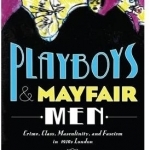
Playboys and Mayfair Men: Crime, Class, Masculinity, and Fascism in 1930s London
Book
In December 1937, four respectable young men in their twenties, all products of elite English public...
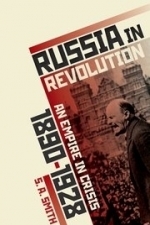
Russia in Revolution: An Empire in Crisis 1890-1928
Book
The Russian Revolution of 1917 transformed the face of the Russian empire, politically,...
History Politics
Charles Sheeler: Fashion, Photography, and Sculptural Form
Book
Philadelphia native Charles Sheeler (1883-1965) is recognized as one of the founding figures of...
In the City of Bikes: The Story of the Amsterdam Cyclist
Book
Part personal memoir, part history of cycling, part fascinating street-level tour of Amsterdam, "In...
Old-Time Religion Embracing Modernist Culture: American Fundamentalism Between the Wars
Book
Old-Time Religion Embracing Modernist Culture focuses on the founding generation of American...

A Taste of Love
Book
'I have starved in some of the most beautiful places in the world ...' The Irish Times food writer...
Matthew Krueger (10051 KP) rated Rasputin, the Mad Monk (1966) in Movies
Nov 10, 2020
The story is largely fictionalized, although some of the events leading up to Rasputin's assassination are very loosely based on Prince Yusupov's account of the story. For legal reasons (Yusupov was still alive when the film was released), the character of Yusupov was replaced by Ivan (Matthews).
Christopher Lee play as Grigori Rasputin, the Russian peasant-mystic who gained great influence with the Tsars prior to the Russian Revolution.
The emphasis is on Rasputin's terrifying powers both to work magic and to seduce women.
Rasputin the Mad Monk was filmed back-to-back in 1965 with Dracula: Prince of Darkness, using the same sets at Hammer's Bray Studios. Lee, Matthews, Shelley and Farmer appeared in both films. In some markets, it was released on a double feature with The Reptile.
It was the third collaboration between Christopher Lee and Don Sharp, following The Devil Ship Pirates and The Face of Fu Manchu.
Lee later said, "The only way you can present him is the way he was historically described. He was a lecher and a drunk, and definitely had healing powers. So he was a saint and a sinner... There were very few good sides to him. Rasputin is one of the best things I’ve done. "
"I think it's the best thing Chris Lee's ever done," said Sharp in 1992. "Rasputin was supposed to have had this ability to hypnotise people.
The original ending had the lifeless Rasputin lying on the ice with his hands held up to his forehead in benediction. However, it was considered controversial for religious reasons, and was removed. Stills of the original ending still exist.
Sharp says the final fight scene between Francis Matthews and Christopher Lee was greatly cut by Tony Keys when Sharp had to leave the film during editing. Sharp had greatly enjoyed the experience of making his first two Hammer films - Kiss of the Vampire and Devil Ship Pirates - but not Rasputin.
As a child in the 1920s, Lee had actually met Rasputin's killer, Felix Yusupov. In later life Lee met Rasputin's daughter Maria.
Its a good horror film.
Jacqueline Stewart recommended Fieldwork Footage (1928) in Movies (curated)
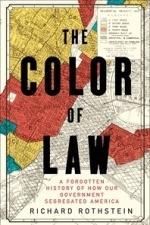
The Color of Law
Book
In this groundbreaking history of the modern American metropolis, Richard Rothstein, a leading...
History Politics

